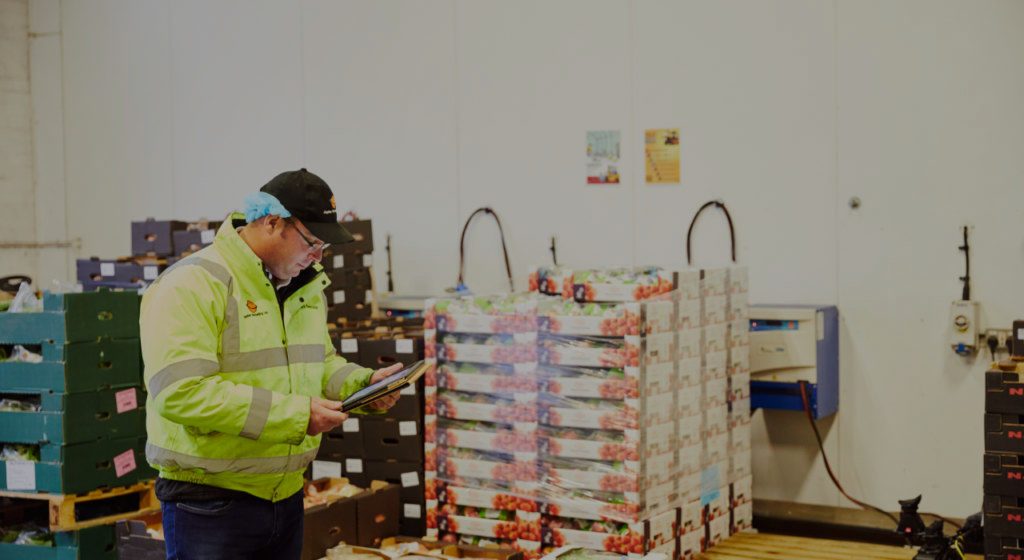How manufacturers are turning uncertainty into opportunity
With periods of change and uncertainty, comes disruption. In today’s rapidly moving world, businesses in every sector must find ways to adapt, and the manufacturing industry is no exception. With digital transformation and Industry 4.0 heightening consumer expectations and competition, and increased government pressure around compliance from US trade/tax tariff changes and Brexit, manufacturers face a significant challenge to lead their industry to a brighter future.
We teamed up with IDC to gain the inside perspectives of 900 manufacturing professionals across the UK, US and Canada. We found that, despite the challenges of the current period of macroeconomic and political uncertainty, manufacturers are taking control by preparing themselves at an organisational level. This includes keeping closely up to date with current affairs and focussing on long-term strategies.
By staying informed, taking a proactive strategic approach and investing in the right tools, today’s manufacturers are firmly in the driving seat.
99% of manufacturers are preparing for growth, and 85% believe their home country will become an industry leader by 2025.
This attitude demonstrates a widely adopted sense that today’s uncertain times, though they may bring challenges, actually create new opportunities for those willing to embrace change, think differently and keep their eyes on the future.
Opportunities created by regulatory change
Globalisation provides lucrative opportunities such as access to cheaper raw materials and increased demand. But it also brings challenges, like more competition and an accelerated rate of change.
In the UK, Brexit will change trade agreements with the EU, carrying implications for those who export to Europe Meanwhile, US manufacturers are seeing bilateral and renegotiated trade agreements, as well as corporate tax reform, which impact supplier networks and supply sources, and pushes up the cost of materials.
Manufacturers across the UK, US and Canada are using this period of change to drive investment in new technologies. This will allow the digitalisation of global trade and supply chain operations, enabling manufacturers to meet customer and industry demands, while creating efficiencies.
Facing the war on talent to embrace new opportunities
Industry 4.0 has given rise to an era of intelligent machines and robotics – causing manufactures to place higher value on workers with technical skills, such as data science and computer science. Many now consider these skills to be critical to becoming a market leader within the next five years.
The biggest obstacle to satisfying the appetite for technical workers, is a declining international talent pool. This is driven by new regulations that affect immigration, and will cause many manufacturers to adjust their recruitment strategies and begin looking for people locally.
To maximise their chances of finding the right talent, manufacturers will open up opportunities to those who are under-represented, such as single parents, people with disabilities, young people and ethnic minorities. Many will also adapt their business to appeal to these groups, considering actions such as flexible working or revisiting the company’s mission, values and purpose.
The need for traceability
As process manufacturers expand internationally, commercial pressures and expectations mean traceability is vital to managing quality, inefficiency, and the threat of recalls. With longer and more complex supply chains, being able to trace what goes into products is crucial to avoiding contamination.
Adding to this complexity, consumers are becoming more aware of what goes into their bodies. Factors such as dietary requirements and environmental concerns are transforming the types of products are in demand.
Manufacturers from every sector have recognised the risks of not having traceability within their supply chains, including the loss of brand value, failure to meet regulations, and in worst-case scenarios, the loss of human life.
Preparing for change in an uncertain world
As mentioned above, the manufacturing industry remains ambitious and confident despite today’s uncertainty. This is demonstrated by the fact that a third of UK, US, and Canadian process manufacturers claim enhancing profitability is their biggest priority.
To achieve this, they are looking to improve customer experiences, expand into new markets and invest in technology that can help them drive productivity through supply chain optimisation and data-driven production.
As well as enhancing profitability, the new technologies currently being adopted by manufacturers also keep them nimble, helping them to navigate and adapt to regulatory pressure and sudden changes.
What are process manufacturers investing in?
When it comes to manufacturing, the leading reasons for investment in technologies are the reduction of costs, increased visibility of the supply chain and automation of repetitive tasks. Though still important, risk mitigation is less of a priority which shows how manufacturers are looking to technology as a profitability driver.
The developments that manufacturers anticipate will have the biggest impact on the industry are robotics, IoT and automation – all of which are already entering the mainstream and quickly becoming ubiquitous.
Conclusion
Though regulatory changes such as US trade/tax tariff changes and Brexit are causing disruption for manufacturers, many are riding this wave of uncertainty with new strategies, a deeper focus on local goods, increased investment in new technologies and different recruitment methods. Attitudes also reveal a confidence and ambition for the future of manufacturing, as many take this opportunity to increase productivity and drive profitability.
For a deeper look into our respondents’ thoughts and plans on business strategy, access to talent, technology adoption and emerging environmental factors, download the full report below.
Download > https://www.sage.com/en-ca/blog/manufacturing-report-2019-riding-the-wave-of-uncertainty-free-guide/






